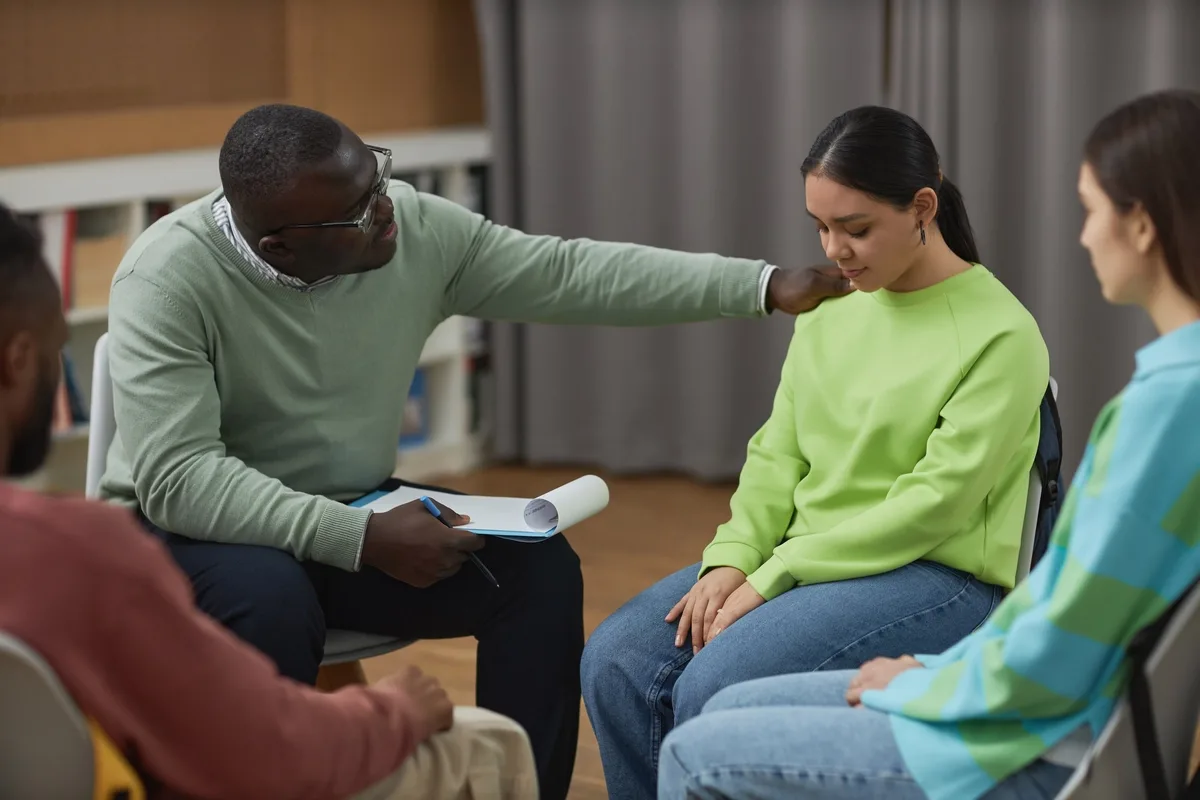24/7 Helpline:
(866) 899-221924/7 Helpline:
(866) 899-2219
Learn more about PTSD Treatment centers in Montgomery
PTSD Treatment in Other Cities

Other Insurance Options

Carleon

Amerigroup

EmblemHealth

Sutter

Access to Recovery (ATR) Voucher

Molina Healthcare

Oxford

Absolute Total Care

Multiplan

WellPoint

UnitedHealth Group

Self-pay options

AllWell

Humana

United Health Care

Optum

Evernorth

Premera

Medical Mutual of Ohio

Cigna

























